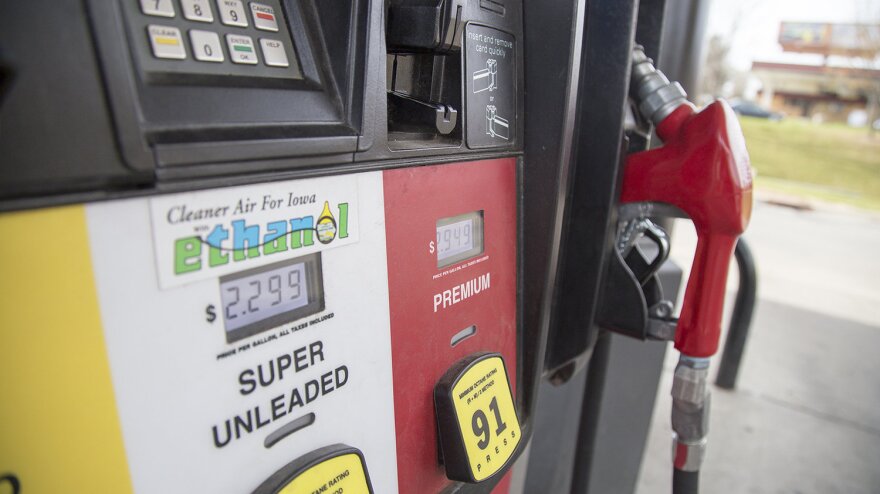The U.S. EPA is increasing the amount of renewable fuel that must be used by oil refiners in 2020, but Corn Belt lawmakers and farm industry groups said the agency is violating an agreement they reached with President Donald Trump aimed at making up for refinery waivers that undercut demand for ethanol and biodiesel.
Under the final rule issued by the EPA, 20.09 billion gallons of renewable fuel must be mixed into the nation’s fuel supply in 2020, a slight increase over 2019. The total includes 15 billion gallons of conventional ethanol, which is generally made from corn and provides a key market for corn growers in the Midwest.
In a statement, EPA Administrator Andrew Wheeler said the agency had delivered on the administration’s promise to the industry.
“President Trump committed to our nation’s farmers that biofuel requirements would be expanded in 2020,” Wheeler said. “At the EPA we are delivering on that promise and ensuring a net of 15 billion gallons of conventional biofuel are blended into the nation’s fuel supply.”
But biofuel supporters say they can’t be sure the 2020 mandate will deliver the demand they expect because of how the EPA plans to account for exemptions that allow oil refiners to reduce their obligations.
From 2016 to 2018, the EPA granted Small Refinery Exemptions (SREs) adding up to more than 1 billion gallons per year, on average, including some to oil industry heavyweights such as Exxon Mobil and Chevron. The new rule includes a proposal first announced by the EPA in October that restores lost demand from the waivers by adding back gallons based on the amount of waivers recommended by the U.S. Department of Energy. Industry supporters were never satisfied with the agency’s plan, however, because the EPA rarely follows DOE recommendations.
“For the three years of the Trump administration, the EPA routinely granted just about double the amount of exempted gallons as DOE recommended, so that’s not a complete fix,” said Monte Shaw, executive director of the Iowa Renewable Fuels Association.
Shaw said relying on DOE numbers breaks an agreement between President Trump and lawmakers from key ethanol producing states first reached in September and confirmed on October 4. According to that deal, Shaw said the EPA would have restored demand based on the actual waivers granted by the agency.
It appears the White House is going along with the EPA’s version of the policy. According to Bloomberg, it was approved by a White House regulatory office, and went unchanged even after repeated objections from Midwestern lawmakers, farm groups and ethanol industry representatives.
“Apparently President Trump doesn’t care about his promise to Iowa’s farmers,” Iowa Corn Growers President Jim Greif said in a statement. “He had the opportunity to tell his EPA to stick to the deal that was made on October 4.”
The EPA said it is committed to following DOE recommendations going forward, which means its method of accounting for lost demand would be accurate. But Senator Joni Ernst, R-Iowa, a strong industry supporter, said in a statement that she remains skeptical.
“We were guaranteed a deal in September, and we were assured of that same deal in October, yet EPA rolled out, and has now finalized, a different proposal. It’s no wonder trust has been lost,” Ernst said.



